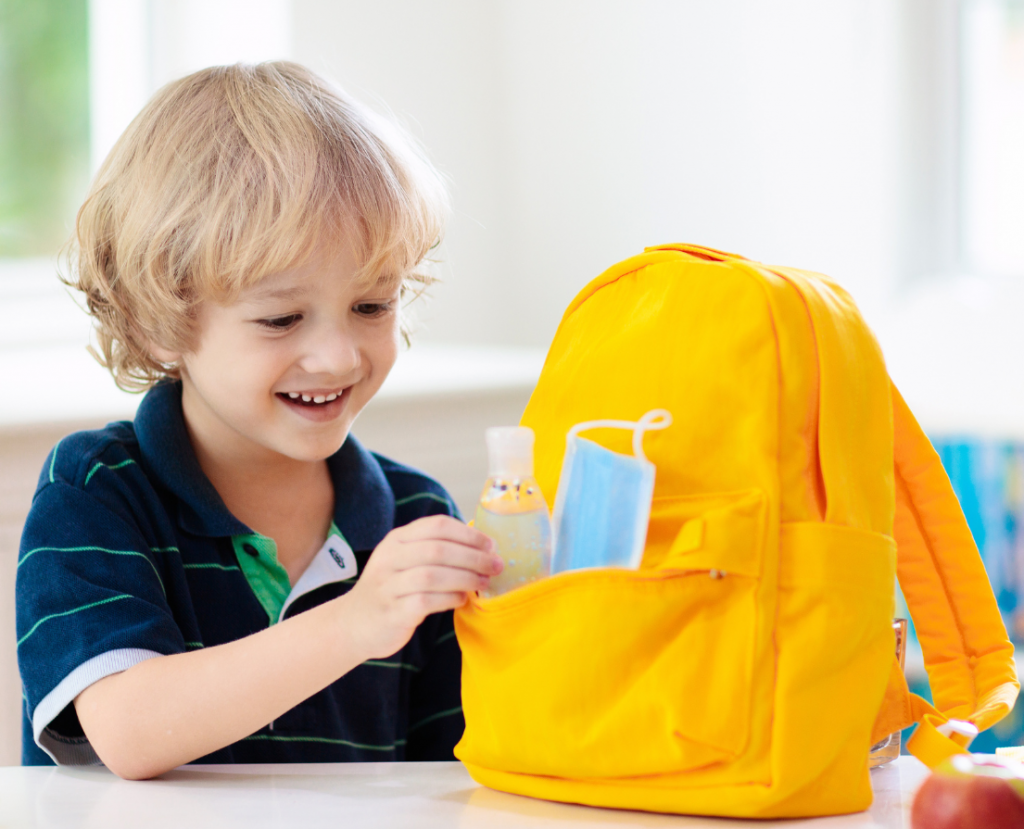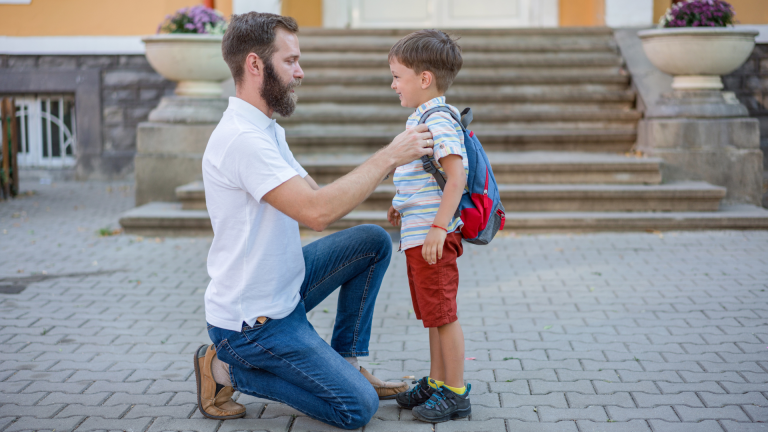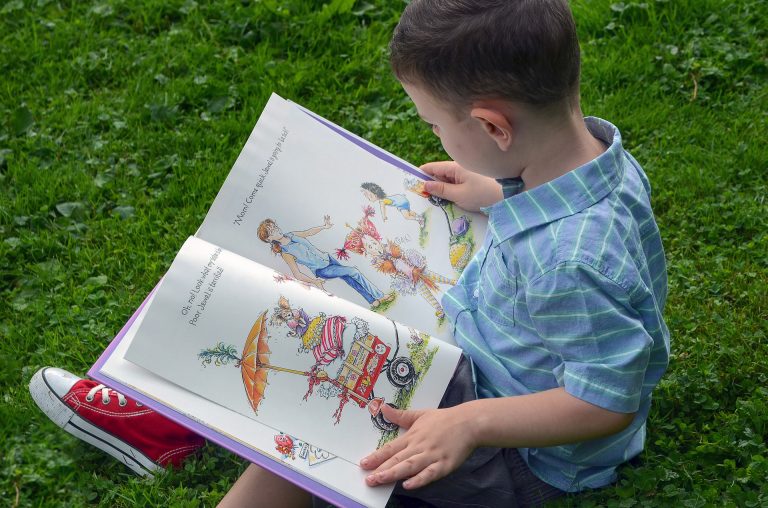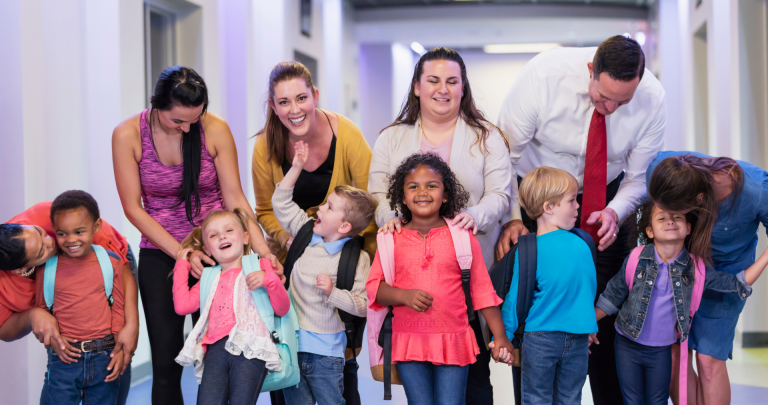When considering whether your child should start school next year or hold off another year, parents can have a number of questions –
Will my child be ready to start next January? What are the benefits of waiting until they are older? What can I be doing to help them be ready?
If your child attends an early childhood service (preschool, long day care, family day care or transition program) talk to the educators about this important decision.
Added to these common questions, parents and educators as well as researchers are now considering the impacts of the COVID-19 pandemic. How did the lock downs and school closure affect children? Lots of school and preschool days were missed due to families isolating during infectious periods.
So let’s consider some of what we are now learning about some of the indirect impacts of the COVID-19 pandemic.
The psycho-social impacts of the pandemic on children are not yet widely understood however we do know that the public health measures that were in place during periods since the pandemic was declared have impacted families and children. These impacts on family dynamics may have led to increased challenges for children 0 – 5 years.

A report titled The impact of the COVID-19 pandemic on children in Australian early childhood education and care prepared for the Department of Education, Skills and Employment and published in January 2022 notes these challenges include-
“Worsening behaviour and mood; increased clinginess, anxiety and levels of stress; increased hyperactivity and inattention; increased abuse and neglect; decreased physical activity and increased screen time; and possible disruptions to the length and quality of sleep”.
During the pandemic, families experienced school closures and remote learning.
Early childhood education centres and services also closed in parts of Australia. Families withdrew their children from formal and informal child care, including grandparents.
Other impacts include periods of reduced access to health care including GP and allied health services such as speech pathology, occupational therapy and mental health services. Many of these services moved to telehealth which brought other challenges for parents working from home and home schooling children. Often services were delayed as a result.
The indirect impacts of COVID‐19 and related policy responses will likely have broad, long‐lasting implications for children. We know that children already experiencing adversity are disproportionately affected, potentially widening education, social and health inequities.
What can we do to help children be ready to start school?

Children who are thriving at the beginning of their school life will have better outcomes. Parents and early childhood educators consider a range of skills when deciding if a child is ready for school. It is not just about the child’s age. Parents should feel comfortable talking over their concerns with their child’s educators.
Helping your child transition to school takes time and support. A transition is a period of change. It is a process over time rather than a sudden switch. For example, when your child learnt to walk they did it in stages; pulling themselves up on the couch or coffee table, walking with support, walking holding your hand and then finally – walking on their own! They learned to walk in stages and you supported their progress. Take this same approach when helping your child to be ready for school.
Things to consider
By the time children start school it is helpful if they can do the following most of the time. By starting early you can help to prepare your child so they are more confident and independent.
Self-help skills – is independent in using the toilet and washing hands; can get dressed and undressed; can put on socks and shoes; can unpack and unwrap recess and lunch and eat independently; can keep track of their belongings.
Social emotional development – can separate from a parent or carer; can recognise how others might be feeling; can play with other children, share and take turns; can attend to an activity; can say their full name and please and thank you.
Language skills – can express their needs and wants effectively in words; are speaking in complete sentences; most people can understand their speech; can follow 2-step directions and understand positional words such as ‘under’, ‘next to’.
Maths skills – can count from 1-10 and understand the concept of these numbers; recognises shapes; sort items by categories such as colour or size; identify and name some colours.
Fine Motor skills – can hold a pencil; use scissors to cut out shapes; trace around basic shapes or copy and draw shapes; fasten zippers and buttons.
Gross motor – is able to run, jump and skip; balance on one foot; walk upstairs; bounce and catch a ball; is aware of their body space and others.
At Sounds good to me we are really interested in preparing children’s early reading skills. If children have these skills they will find it easier to learn how to read when they start school.
Literacy skills – does your child –
- Enjoy being read to/listening to stories
- Know how to handle a book (holds book right side up, knows where it starts & ends)
- Recognise environmental print (familiar logos, signs and words)
- Recognise own name in print
- Try to write own name or other ideas by using symbols or letters
- Draw a picture to express an idea

Phonological (sound) awareness skills – are skills children develop as they begin to understand that a words is made up of syllables and single sounds. For example cat-a-pi-llar = caterpillar or d-o-g = dog. Children who have phonological or sound awareness skills when they start school will have more success learning to read than children who don’t have these sound awareness skills.
Sound awareness skills as children start school include;
- Shows an interest in words and sounds
- Has some awareness of first sounds of words, for example cherry starts with the ‘ch’ sound
- Can say the alphabet or part of the alphabet
- Identifies some letters and some of the sounds they make, either by sound to letter or letter to sound, for example they may know the first letter and sound in their own name
- Knows whether or not 2 words rhyme, may be able to provide a 3rd rhyme for the words
Would you like to learn simple and effective ways you can help your child be ready for school?
Sounds good to me – for parents was created by speech pathologists, covering all aspects of early literacy (language and reading) skills that your child needs before they start school.
Priced at just $22 for one month’s access and then just $5.50 per month following. Cancel at any time.
You get access to 8 short videos and downloadable activities and information. The video series includes;
- Introduction to sound awareness
- Listening skills
- Speech and language development
- Reading with your child
- Rhyming
- Words and syllables
- First sounds in words
- Introducing letters and sounds
Does this sound good to you?
Sounds good to me – for parents was developed in response to requests from parents. It is a stand- alone resource for parents of children who are starting school in the next year or two. It is also an excellent companion course for our educators’ programs (centre based or family day care).
Anne Williams
Speech Pathologist
References
Potential indirect impacts of the COVID‐19 pandemic on children: a narrative review using a community child health lens. Sharon Goldfeld, Elodie O’Connor, Valerie Sung, Gehan Roberts, Melissa Wake, Sue West and Harriet Hiscock. Med J Aust 2022; 216 (7): 364-372. || doi: 10.5694/mja2.51368
Published online: 24 January 2022
The impact of the COVID-19 pandemic on children in Australian early childhood education and care. A rapid review prepared for the Australian Government Department of Education, Skills and Employment, January 2022. Retrieved from here.

